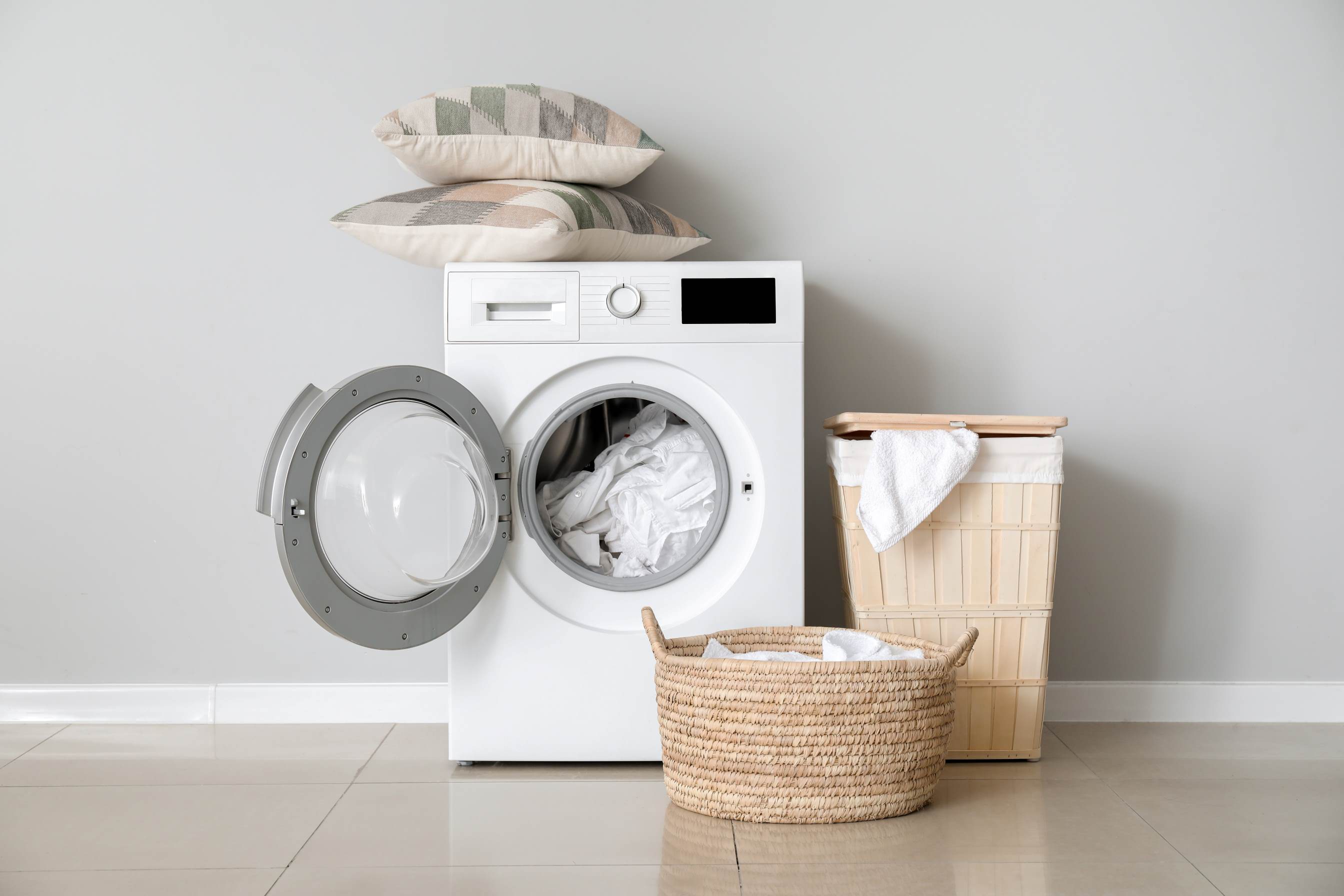
Have you ever wondered how much water we actually use in a single wash? Water consumption depends on the type of washing machine, its age, and the selected programme.
Average Water Consumption Per Wash
- Older washing machines (15+ years) – 100 to 150 litres per wash.
- Standard washing machines (modern but not the most efficient) – 50 to 80 litres.
- Water-efficient machines with optimisation technology – 40 to 60 litres.
- Machines with an eco function – can use as little as 35–50 litres per cycle.
The biggest difference comes from the drum capacity – large washing machines with a capacity of 9+ kg may use more water, but if you wash a full load, they are paradoxically more efficient than smaller machines using the same amount of water for a smaller amount of laundry.
How Can I Reduce Water Consumption When Washing?
- Always Fill the Washing Machine: Avoid running the machine for just a few pieces of clothing. A fully loaded washing machine uses water more efficiently than multiple smaller washes.
- Use Eco Programmes: Modern washing machines have eco modes that optimise the amount of water used and wash for longer at lower temperatures. They consume less water and energy.
- Choose the Right Detergents: Laundry gels dissolve better than powders, so extra rinsing isn’t necessary. If you’re washing in soft water, you can reduce the amount of detergent – this way, the washing machine will use less water for rinsing.
- Clean Stains by Hand Instead of Pre-Washing: If your laundry is heavily soiled, it's better to pre-treat stains by hand in a basin. Pre-washing in the machine significantly increases water consumption.
- Check the Age of Your Washing Machine: Old washing machines can use 100-150 litres of water per wash, while modern models with water sensors consume only 40-50 litres. If you have an older washing machine, upgrading to a newer model can save hundreds of litres of water each month.
Can Hard Water Affect Water Consumption When Washing?
Yes, hard water contains high levels of minerals (mainly calcium and magnesium), which can negatively impact washing. These minerals react with the detergent, reducing its effectiveness – as a result, laundry is cleaned less effectively, and the washing machine may automatically add extra rinses to thoroughly remove detergent residues.
In addition to higher water consumption, hard water can also cause limescale buildup in the washing machine, reducing its efficiency and lifespan.
